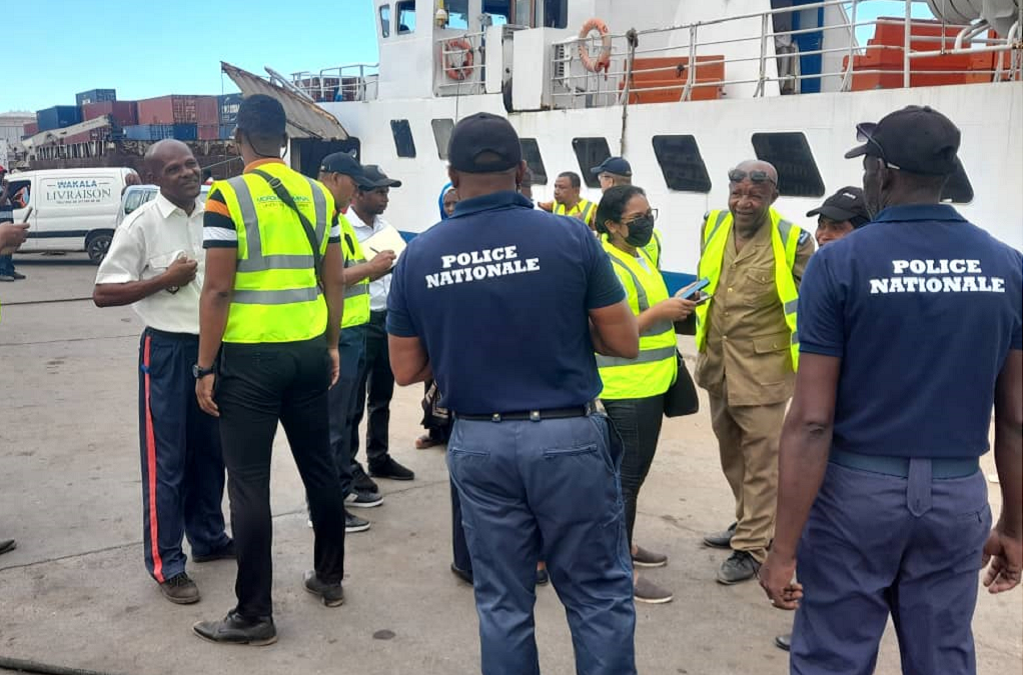Integrated Coastal Security in Nigeria – Building a Safer Maritime Frontier
Nigeria’s 850+ kilometers of coastline and vast Exclusive Economic Zone (EEZ) are strategic assets vital to national security, economic development, and regional stability. However, this maritime space faces complex threats—piracy, oil theft, smuggling, illegal fishing, and transnational crime. To address these challenges, Nigeria is advancing an integrated coastal security framework that brings together surveillance, intelligence, law enforcement, and infrastructure development under a unified strategy.
This article examines the structure and benefits of integrated coastal security in Nigeria, the technologies involved, and how Wigmore Trading supports coastal security initiatives through specialized sourcing, logistics, and infrastructure services.
What Is Integrated Coastal Security?
Integrated coastal security refers to a coordinated, multi-agency approach to monitoring, protecting, and controlling a nation’s coastal and maritime domain. It brings together:
-
Naval and maritime forces
-
Law enforcement and customs authorities
-
Intelligence and surveillance agencies
-
Environmental protection and fisheries departments
-
Port security and private sector stakeholders
Rather than isolated efforts, it promotes real-time collaboration, shared intelligence, and unified command to secure coastal waters and maritime infrastructure.
Why Integrated Coastal Security Matters in Nigeria
1. Complex and Persistent Threats
The Gulf of Guinea is a global hotspot for maritime insecurity. Nigeria’s coast is vulnerable to:
-
Armed robbery and piracy
-
Illegal oil bunkering
-
Smuggling of arms, drugs, and contraband
-
Marine pollution and illegal fishing
-
Sabotage of offshore energy assets
2. Critical Economic Infrastructure
Ports, oil terminals, underwater pipelines, and offshore rigs are vital to Nigeria’s economy and require constant protection.
3. Regional and International Obligations
Nigeria’s integrated coastal security strategy helps meet obligations under the ISPS Code, ECOWAS maritime security frameworks, and IMO safety conventions.
Key Components of Integrated Coastal Security in Nigeria
1. Maritime Domain Awareness (MDA)
Integration of Automatic Identification Systems (AIS), coastal radar, satellite imagery, and UAVs to maintain a real-time view of vessel activity and potential threats.
2. Coastal Surveillance Infrastructure
Deployment of fixed and mobile radar stations, observation towers, long-range cameras, and sensor arrays along high-risk coastal corridors.
3. Joint Maritime Operations Centers (JMOCs)
These centers facilitate coordination between the Nigerian Navy, NIMASA, Marine Police, and Customs for incident response and intelligence sharing.
4. Smart Port Security Systems
Access control, underwater surveillance, container scanning, and cybersecurity systems deployed at major ports like Lagos, Calabar, and Onne.
5. Naval Patrols and Quick Reaction Units
Coordinated naval and coast guard patrols using fast intercept vessels, helicopters, and drones for rapid interdiction and rescue missions.
6. Legal and Policy Frameworks
Regulatory support from agencies like NIMASA and NCC ensures compliance with national and international maritime security standards.
How Wigmore Trading Supports Coastal Security Initiatives
Wigmore Trading is a trusted partner for government agencies, contractors, and security providers working on integrated coastal security systems in Nigeria. Our expertise spans:
1. Sourcing Surveillance and Communications Equipment
We supply marine radar, AIS systems, coastal CCTV towers, drone kits, encrypted radios, and command center displays from top global brands.
2. Logistics for Coastal Infrastructure Projects
Our team manages shipping, customs clearance, and inland delivery of specialized equipment to remote coastal bases and operational outposts.
3. Power and Communication Infrastructure
Wigmore Trading delivers solar arrays, batteries, VSAT terminals, and off-grid telecom solutions for base stations and monitoring units.
4. Mobile Command Centers and Patrol Support
We supply modular shelters, portable surveillance platforms, and onboard electronics for mobile coastal patrols and quick-response vessels.
5. Compliance and Government Project Fulfillment
We assist with documentation, certifications, and procurement compliance when supporting publicly funded security initiatives.
Contact Wigmore Trading today to support your integrated coastal security goals with reliable sourcing and end-to-end logistics solutions.
Conclusion
Integrated coastal security is not just about stronger defenses—it’s about smarter, coordinated maritime governance. For Nigeria, building a resilient coastal security architecture means protecting trade, energy, fisheries, and national sovereignty. As technologies advance and threats become more complex, trusted partners like Wigmore Trading play a key role in delivering the tools and infrastructure that enable real impact on the water.
Wigmore Trading is proud to support Nigeria’s coastal protection strategy through secure, efficient sourcing and logistics for maritime surveillance and security systems.








Comments are closed.